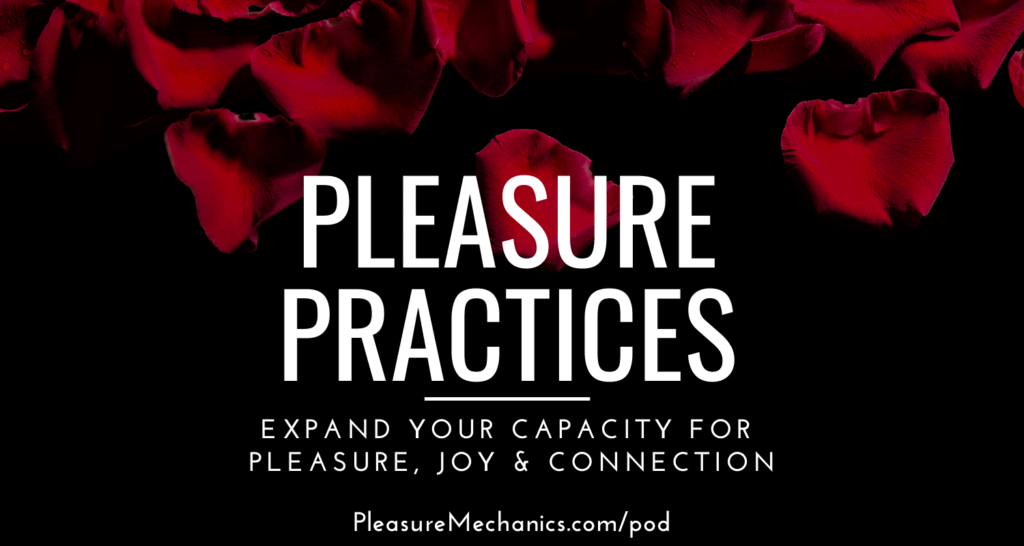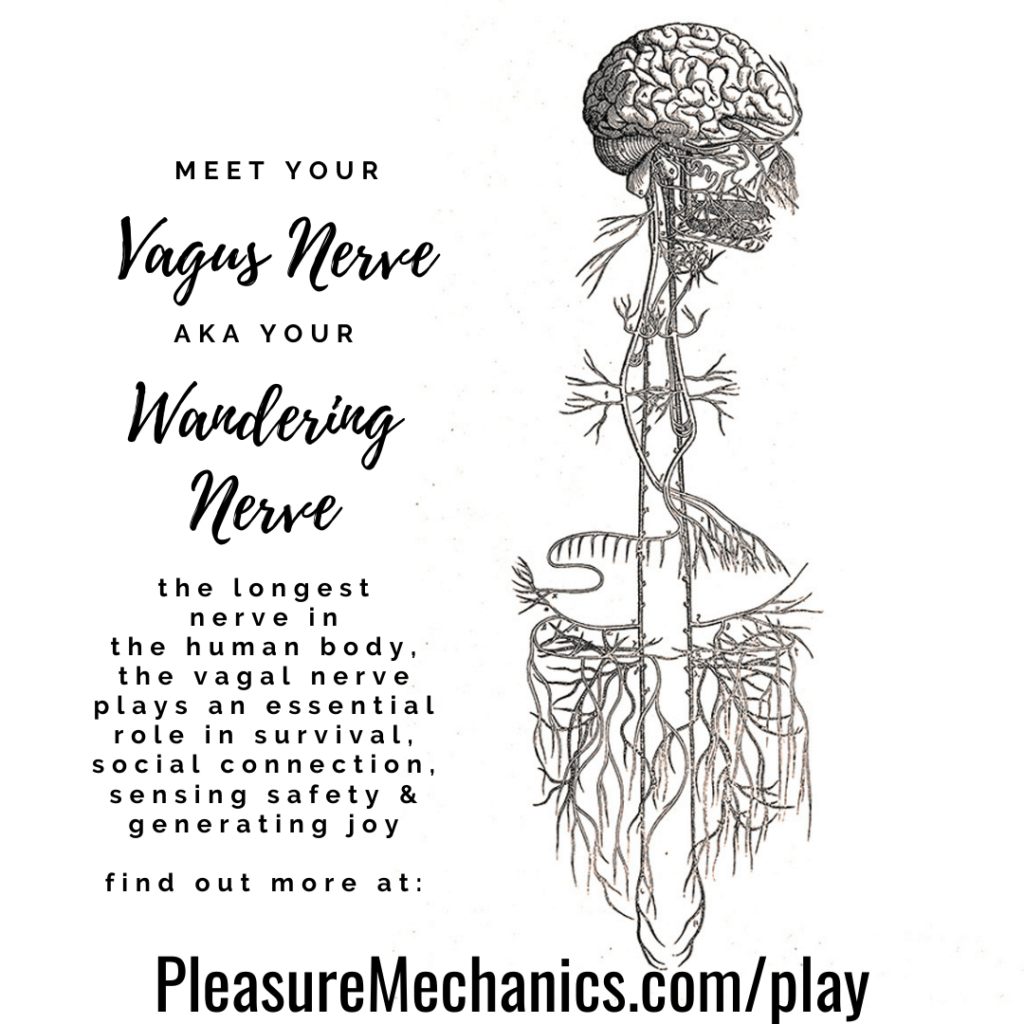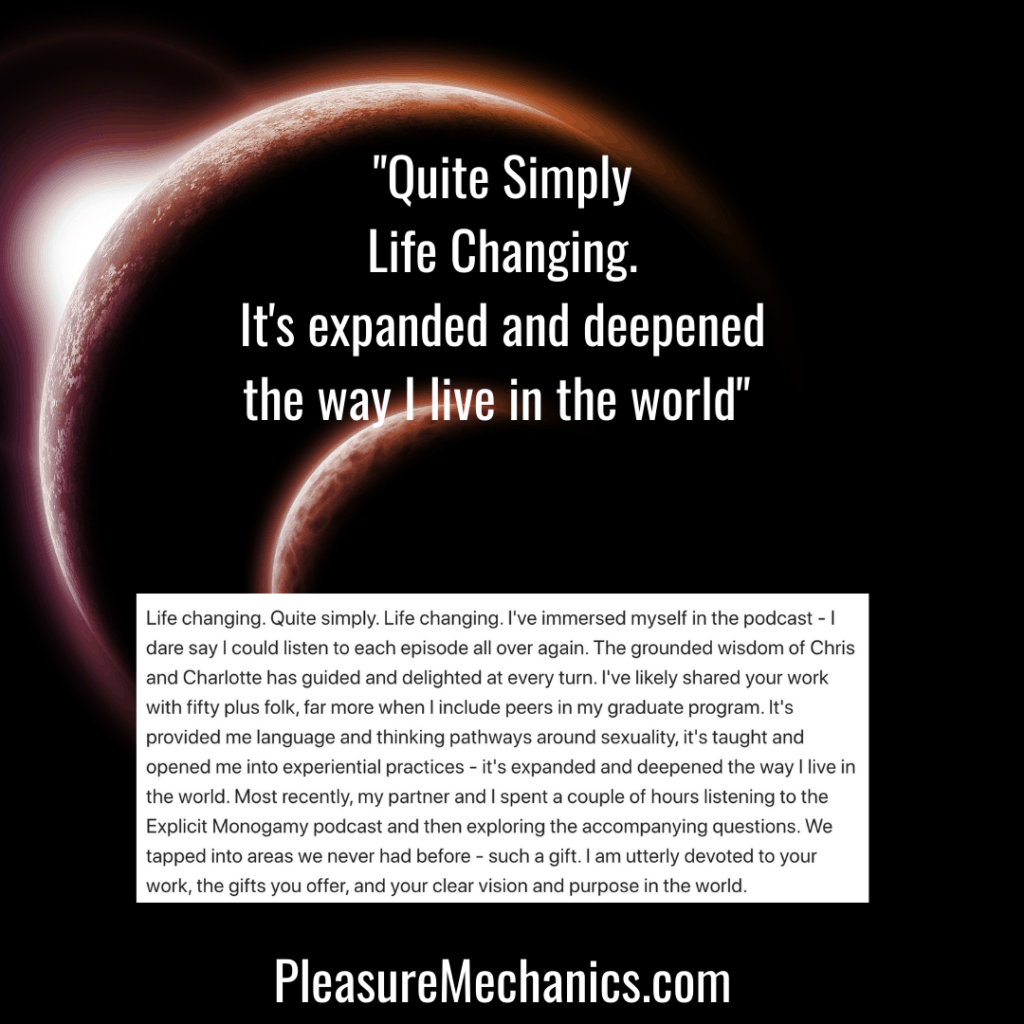Play is excitement added to a foundation of safe connection. Without safety, what is supposed to be fun can become fearful.
The human body needs to feel safe before pleasurable play, creative joy and erotic connection can authentically emerge.
According to emerging science, play is engaging in effort or activity for enjoyment’s sake – and so much more. Play is how humans connect, release tension, explore creativity, get innovative and build collective bonds through joy!
Sex is one way that adults play together – but for many of us sex has become far too serious and the playful sense of joyful exploration feels too far away.
Here are some resources on play as it relates to your erotic life – why play is so important to a great sex life, how to feel safe enough to play, and ways to get more playful with your self, your lover and in your sex life.
Speaking Of Sex Podcast Episodes About Play & Playful Sex
- The Pleasures of Play
- Before Pleasure Comes Safety
- How To Have More Playful Sex
- Spontaneous Vs. Responsive Desire
Practice Pleasure With Us!
Self Holds With Charlotte Mia Rose
This practice is offered as a gift for all to explore. Explore our Pleasure Practices library for more solo and partnered explorations to build your capacity for pleasure, joy & connection.

“The autonomic nervous system has three choices. Our longing is to be in that ventral vagal, safe, social connected place. We are built to be there. If something comes into our world that triggers a sense of danger, the next stop as we go back to the hierarchy we go to fight-flight, right? And if fight flight doesn’t resolve the danger we end up at the very bottom of the hierarchy in dorsal vagal collapse. And that’s the pattern that all humans go through.” – Deb Dana on the basic structure of the autonomic nervous system

The 3 foundational states of the vagal system:
- Ventral Vagal : Relaxed Awareness, Social Connection (Chris lovingly calls this the VaVaVoom Zone)
- Sympathetic Mobilization (Fight / Flight / Hyperarousal)
- Dorsal Vagal Immobilization (Freeze / Hypoarousal)
Resources About Polyvagal Theory
Deb Dana’s invaluable books: The Polyvagal Theory In Therapy and Polyvagal Exercises for Safety and Connection
My Grandmother’s Hands : Racialized Trauma and The Pathway To Mending Our Hearts and Bodies by Resmaa Menakem
Polyvagal Pioneer Steven Porges‘ son explains the Polyvagal Theory to a crowd:
Deb Dana on Befriending Your Nervous System – During Quarantine and Beyond!
More On PolyVagal Theory
“Play only occurs when one is safe, secure and feeling good, which makes play an exceptionally sensitive measure for all things bad” ~Panksepp & Biven, The Archeology Of The Mind, 2012
“Polyvagal Theory defines interactive play as a “neural exercise” that enhances the co-regulation of physiological state to promote the neural mechanisms involved in supporting mental and physical health. Interactive play as a neural exercise requires synchronous and reciprocal behaviors between individuals and necessitates an awareness of each other’s social engagement system. Access to the social engagement system insures that the sympathetic activation involved in the mobilization does not hijack the nervous system, resulting in playful movements transitioning into aggressive behavior.”
― Stephen W. Porges, The Pocket Guide to the Polyvagal Theory: The Transformative Power of Feeling Safe
- Porges, Stephen W. The polyvagal theory: Neurophysiological foundations of emotions, attachment, communication, and self-regulation. New York, NY: W. W. Norton. 2011
- Porges, Stephen W. “Reciprocal influences between body and brain in the perception and expression of affect.” The healing power of emotion: Affective neuroscience, development & clinical practice 2009
- Panksepp, Jaak, and Lucy Biven. The archaeology of mind: neuroevolutionary origins of human emotions (Norton series on interpersonal neurobiology). WW Norton & Company, 2012.


